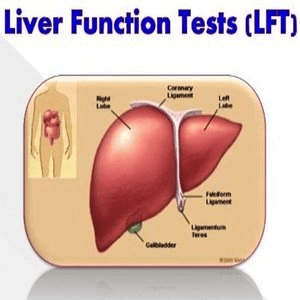LFT Full Form | What is Liver Function Tests
What is the full form of LFT
LFT: Liver Function Tests
LFT stands for Liver Function Tests. It is a group of blood tests that are performed to detect and monitor liver disorders. These tests are also known as a liver panel or hepatic function tests. The liver is one of the largest organs in the body which metabolizes, detoxifies and filters harmful drugs and substances in our body. It also stores vitamins, minerals and synthesizes proteins, enzymes and bile.

In the LFT, the levels of proteins and enzymes in the blood produced by liver cells are checked to know how well your liver is working. If the levels are higher or lower than the normal levels in the blood of a person, he or she may be suffering from a liver disease.
Your doctor may recommend LFTs if you have any of the following:
- Pale body
- Dark urine
- Low appetite
- Heavy drinker
- Nausea or vomition
- Abdominal swelling or pain
- Family history of liver disease
- To detect liver infections like hepatitis C
- To measure the degree of cirrhosis
Some Liver Function Tests:
Alanine transaminase test (ALT): It is also known as SGPT. Alanine transminase is an enzyme found in the liver and plays an important role in processing proteins. When the liver is damaged or inflamed, ALT is released into the bloodstream and its level rises in the blood. It is often performed to diagnose hepatitis.
Alanine transaminase test (ALT):Aspartate transaferase test (AST): It is also known as SGOT. Aspartate transaferase is an enzyme found in liver and various other body tissues. This enzyme also processes proteins. It is released into the blood if the liver is injured or damaged.
Aspartate transaferase test (AST):Alkaline phosphate (ALP): It is an enzyme found in the liver, bile ducts and bone. The higher levels of ALP in the bloodstream indicate liver damage or a disease such as a blocked bile duct or a bone disease.
Alkaline phosphate (ALP):Total bilirubin and direct bilirubin: Bilirubin is produced after the normal breakdown of red blood cells. It passes through the liver before it is excreted out from the body in stool. In case of a liver disease, it is not processed properly by the liver and its levels increase in the blood. The high levels of bilirubin usually indicate Jaundice. In total bilirubin, the level of all of the bilirubin in the blood is measured. In direct bilirubin, only the bilirubin processed by the liver and attached to chemicals is measured.
Total bilirubin and direct bilirubin:Albumin and total protein: This test measures the albumin, a blood protein produced by the liver, and the total amount of all other proteins present in the blood. Albumin helps fight infections and performs various other functions in the body. The low levels of albumin and total proteins may indicate a liver disorder.
Albumin and total protein:Gamma-glutamyltransferase (GGT): It is also an enzyme in the blood. The higher levels of GGT indicate bile duct damage or liver damage.
Gamma-glutamyltransferase (GGT):